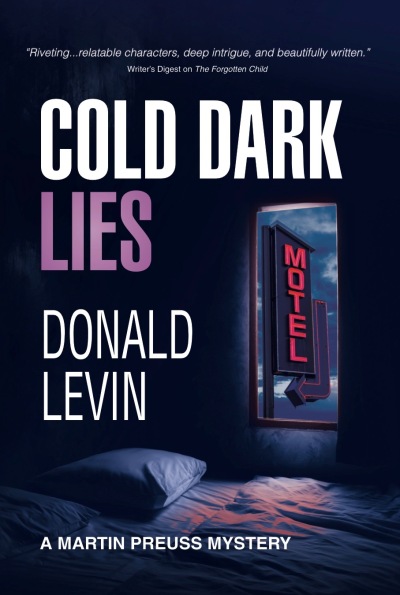Author's Website | Buy Book | Author's Twitter
This week’s blog post is a teaser: the first two chapters of the latest Martin Preuss mystery, Cold Dark Lies.
The ideas for the book go back a long way. As in all the novels, the final version braids together several strands that come from “real” life. The main plot thread comes from an article I read in a Detroit newspaper many years ago about an auto executive from Bloomfield Hills who was found dead in one of the no-tell motels in Ferndale. It was a minor blip in the news day, but it stuck with me all this time. I was intrigued by the dissonance between his privileged, upper-middle class existence and his desire (or need) to take a walk on the wild side at the skeevy motel, with tragic results for himself and the family he must have left behind.
The idea for one of the subplots in the book comes from a student who came to talk to me once about a research study she was undertaking to find out if she was really related to a criminal gang in Detroit in the 1920s, as family lore had insisted.
As always, by the time both of these threads made it to the final version, I had changed much—characters, situations, names, details, circumstances, motivations, and so on. Then I set it all in an imaginary context consistent with a mystery story—so I made up lots of bad actors, bad actions, and events that didn’t happen . . . but that could have.
At first, I imagined the motel guy as a character in a poem called “The Secret Life,” but I knew there was more to the story than the poem could explore. When I started thinking about the next book in the series after An Uncertain Accomplice, I took the story out of my back pocket where I had kept it all these years and started thinking about using it in a Preuss mystery.
This is pretty typical of how I’ve been working with these books. Only in the first book, Crimes of Love, did I make up the inciting episode; in all the rest, I started out with a situation I knew about either because somebody told me the story or I read about it somewhere. (Henry James’s advice to writers: “Try to be one of those on whom nothing is lost.”) After that, it was a matter of imaginatively transforming the original real inciting situations to make them fit with my own purposes and the demands of the plots.
So here’s the beginning of how that process turned out in Cold Dark Lies. Enjoy!



No comments:
Post a Comment